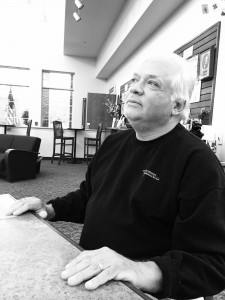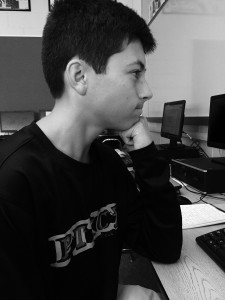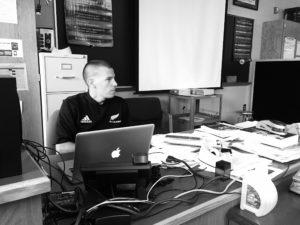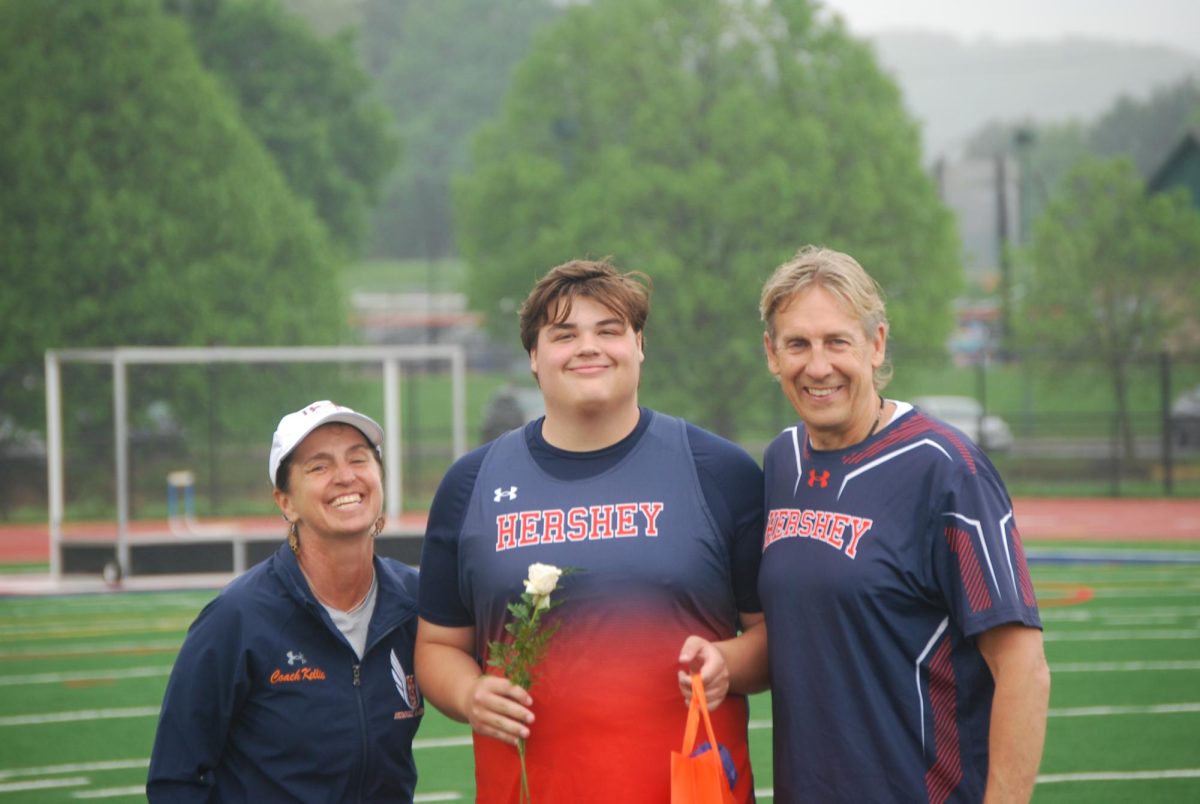By: Kaitlin Christ
On November 7th, 1971 Guy Gravino’s sister, Pamela died when she was in her late twenties from what was assumed to be pneumonia. The hospital called the Gravino family to deliver the devastating news.
“I was a know-it-all eighteen-year-old before that phone call,” said Gravino.
Despite her being nine years his senior, Pamela and Guy were very close. She helped take care of Guy while their parents were at work.
“[Pamela’s death] shaped me into the young man that became the older man,” Gravino said.
Gravino recalled coming together with his family in order to get through the tough time and to deal with their loss.
“Afterwards we would say “I love you” to each other when we parted company in case that was the last time we saw each other,” Gravino said.
Today, as a husband and father to three kids, Gravino is sure that his sister is always there to protect him and his family.
“I feel like she’s always been there for the kids…like a guardian angel,” said Gravino, about Pamela.
A big take away that Gravino has from having this experience in his life is to stay positive through it all.
“Her legacy is the closeness we feel for each other,” Gravino said about how the death of his sister brought his family together.

Teressa Novotny, a social worker at the Penn State Milton S. Hershey Medical Center explained how grief was originally brought into the light.
Novotny said that psychiatrist Elisabeth Kübler-Ross, a psychiatrist and “pioneer in the study of death and dying” discussed and labeled so-called ‘stages’, of the process of grieving after losing a loved one. They are popularly known now as the “five stages of grief.” The five stages consist of denial, anger, bargaining, depression and acceptance. The stages were first introduced when Dr. Kübler-Ross published a seminal book based on her knowledge and experiences with patients, called “On Death and Dying” in 1969.
“A lot of people grabbed onto that and used [the five-stages of grief idea] as a model,” Novotny said.
Even though these stages are labeled in a ‘step to step’ form, they weren’t meant to be taken as a uniform progression, going through steps one to five.
“Even Elisabeth Kübler-Ross said she didn’t mean it to be step by step kind of thing for people,” said Novotny.
Novotny stressed that the stages are not vital to follow for recovery of losing a loved one. A death will affect every person differently.
For Hershey High School sophomore Eric Wood, dealing with death was more of a shock than anything.
“My dad said we would meet him…sometime in the next week. When I got home from school that day, my dad was there, and I couldn’t figure out why,” said Wood.

Wood came home from school on a Spring afternoon thinking that his dad wouldn’t be home, so he was going to do something he wasn’t really ever allowed to do, play video games. Wood walked into his house with a puzzled feeling. He didn’t expect to see his dad standing in the doorway, and his mother crying.
“Soon I pieced together the pieces and realized my grandfather was dead,” said Wood.
Over Easter 2011, Eric Wood’s grandfather passed away from cancer caused by years of smoking. Wood said that his grandfather also suffered from memory loss. Wood remembered that his grandfather would also mix up names, an effect that the memory loss had on him.
“He called me my brothers name, and I was just like well what should I do,” said Wood.
About a week beforehand, the Wood family went to go visit their grandfather one last time.
“We went up there during Easter break, and we were spending time with him and stuff like that because we knew he wasn’t going to survive much longer,” said Wood.
The grieving process may start before an individual is even faced with the actual death.
Novotny said people faced with the impending death of a loved one perform anticipatory grieving, mourning that occurs when the death is expected.
“When there’s someone they love that’s very ill, but who’s still alive, they’re already doing some of that process,” said Novotny.
Novotny said that people have to look forward to see how much their lives will change without that loved one.
After Wood had learned about his grandfather’s death, he was more in shock than anything else. Wood felt as if he was powerless in the situation. Soon after, Wood remembered that he was sobbing and crying.
“I was just like, can you repeat that for me?” Wood said. Soon the reality of the situation sank in.
Novotny described a method called the Task model. For one to get through the severity of the pain of having someone die in the Task model said Novotny, “it has to become real in your head, you kind of have to get through the shock part of that and accept it in your head.”
William Worden, a professor of psychology at Harvard University and fellow of the American Psychological Association created what is formally called “The Four Tasks of Mourning.” The four parts consist of: task one; accepting the reality of the loss, task two; processing the pain of grief, task three; adjusting to a world without the deceased, and task four; finding an enduring connection with the deceased while embarking on a new life.
Wood accepted his reality before the death of his grandfather, by realizing he wouldn’t live much longer. Wood also went through the huge shock of losing him, which made Wood accept the reality of the loss, similarly to task one of “The Four Tasks of Mourning.”
Overall, Wood believed that losing a loved one is the worst thing that he could ever experience. A takeaway that Wood had from his experience is that it made him a stronger person. Wood also noted that he learned to respect people as a whole and to love his grandparents and loved ones.
“You never know what tomorrow will bring,” said Wood.
Wood was not the only one to experience the loss of a loved one. Julianna Castaneda, a senior at Hershey High School, lost her grandmother in January 2015.
Like Wood, Castaneda went to visit her grandmother before her death, too. Castaneda went to Colombia in mid-November of last year for about two or three weeks. Castaneda’s grandmother suffered from Alzheimer’s and back pain.
“It was nice just because I got to see her,” Castaneda said.
Castaneda remembered her aunt calling her mom and getting straight to the point about her grandmother’s death. It was a difficult time for Castaneda because of how close she was with her grandmother. Castaneda had happy memories from the time she spent with her grandmother. Castaneda remembered that her grandmother would always sew and would even make Castaneda dresses when she was little.

“I tried to drown everything out,” Castaneda said, “If I think about it now, I’ll still cry.”
Unlike Wood and Castaneda, Gravino has lived with the loss of his sister, Pamela for decades. Despite the sadness and despair that came along with the phone call that changed his life nearly 45 years ago. Gravino has learned to think and remember his sister in a positive way so he can be a good role model for his three children.
“I’ve tried to impart what I’ve gone through with them,” Gravino said.
Gravino noted that when he and his family would sit down for Thanksgiving dinner, Gravino would talk about how they got to where they are today and how that impacted his family.
“If it wasn’t for Italian immigrants coming to Hershey, if it wasn’t for my mother getting off the train in 1940 and meeting my father on the porch and establishing a presence here,” said Gravino.
Gravino recalled a reoccurring dream that he had shortly after Pamela’s death. that It that Gravinos sister is always there for him and his family. Gravino said that he remembered that the dream consisted of him and his sister talking about normal topics. She would ask about how their parents were and how Gravino was doing.
“Until maybe three months later she goes ‘Are you okay?’ I said “Yeah i’m a lot better” and that was the last time I had the dream. So maybe she had come to me in a sense to try to help,” Gravino said.
Novotny noted that having someone around, whether it is a family member or friend, to talk about the loss of the loved one. Having social support helps grieving be more manageable, like how Gravino had his family to grief with.
“Having a strong family is the best security in these troubled times,” said Gravino, similarly stating what Novotny expressed about having support through hard times.
Unlike Gravino, Wood, and Castaneda, Robert Sterner, a teacher at Hershey High School, didn’t have much memory of the person he lost.
Sterner’s mother, Suzanne, passed away from a viral infection that lasted a very brief amount of time, only about three days. Since this event happened when Sterner was a young child, a lot of the things he knows about his mother are second hand.
“I have a couple of memories, but it’s one of those things where I can’t remember her voice anymore,” said Sterner.
Sterner remembered as a teenager, somehow his family was different from all other families he saw, even though his father had remarried. Sterner expressed that there was definitely something ‘not there’.

Without a mother, he explained that he is very much more like his father. But Sterner questioned how much of that is actually genetics and how much is, “just because my dad was the only one around,” said Sterner.
Sterner expressed that a big part of it was seeing how his father managed the situation.
“All of the sudden my dad goes from having a small family, to being a single dad with two kids under five,” Sterner said.
Since Sterner’s younger brother went to live with their cousins for about six months to a year, it was just Sterner and his father for awhile.
Sterner said that it was seen as “impolite” to show any emotion, so he didn’t really ask his father about the death of his mother.
All of this has impacted Sterner to be a generally private person. Sterner has many acquaintances that he is friendly with, but only a few very close friends.
“When you lose friends, it’s like losing loved ones,” Sterner said.
Sterner explained that he only could talk to a few friends if he had a serious dilemma.
“It’s like the number of people you could trust to call and bail you out of jail…those heavy duty things, it’s like I can count on one hand,” said Sterner.
“It’s tough to miss what you didn’t have,” said Sterner.
Dr. Worden and Dr. Kübler-Ross’s findings and writings have helped many people deal with their grieving processes. Despite their studies, one important thing that Novotny has stressed is that people mustn’t be hard on themselves during this troubling time. There is no set time to get over the death of a loved one. Novotny said that people used to say that it would take six months and ‘you’re fine’ but there really is no timeline to get over the death of a loved one.
“Everybody is different, theres no really right way or wrong way to deal with grief,” said Novotny.



